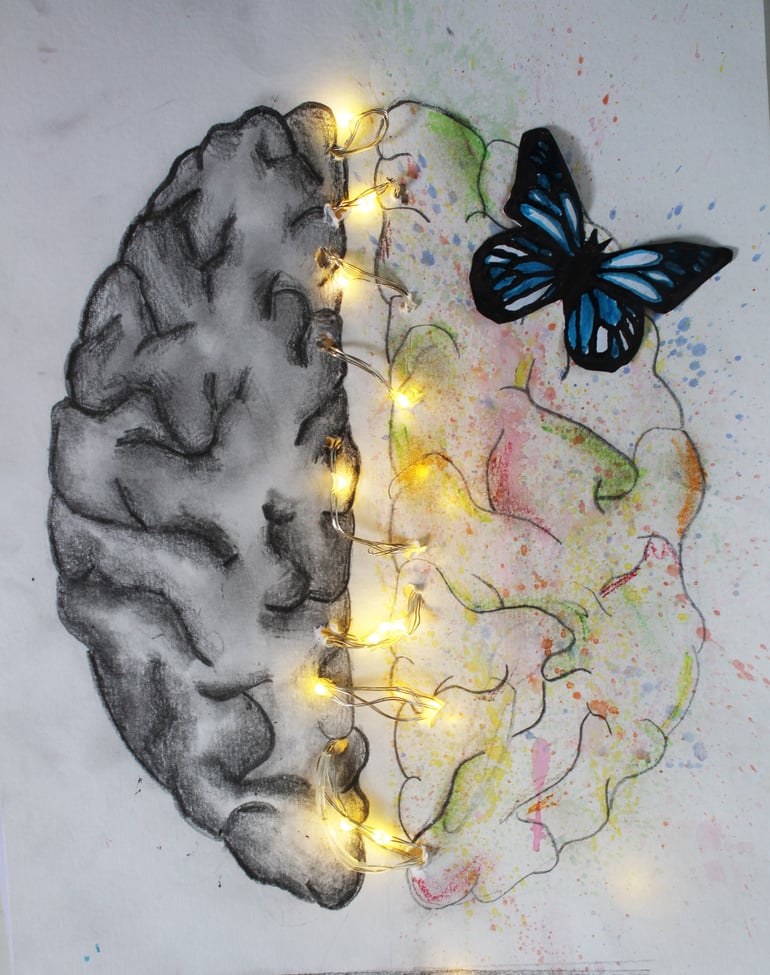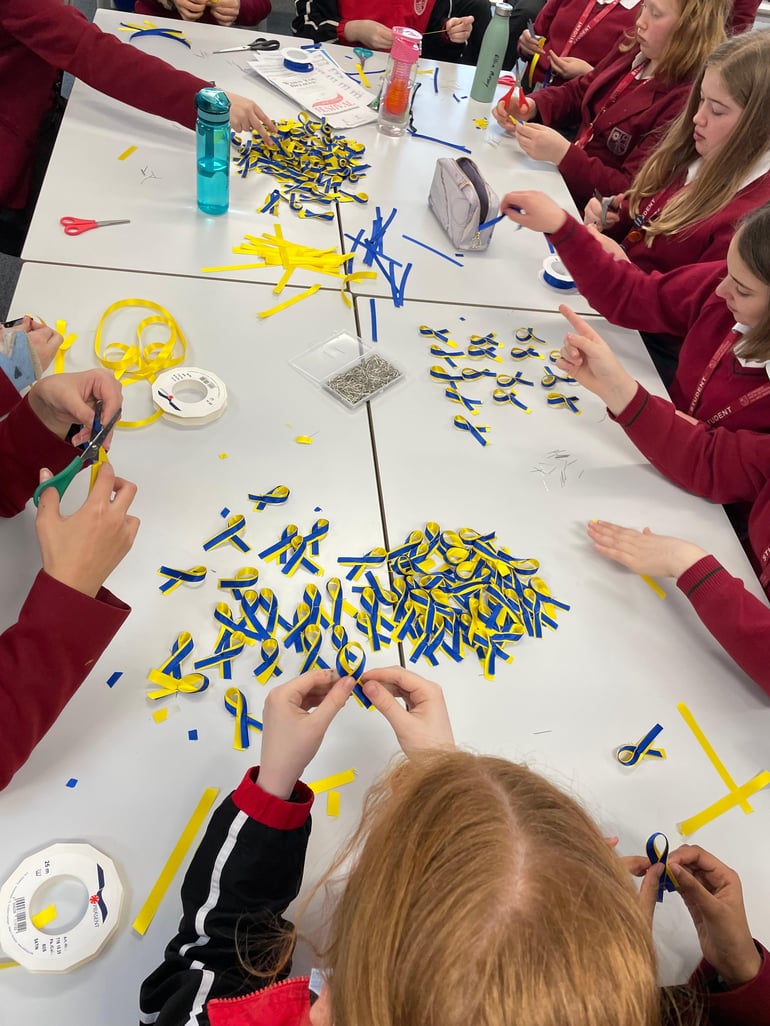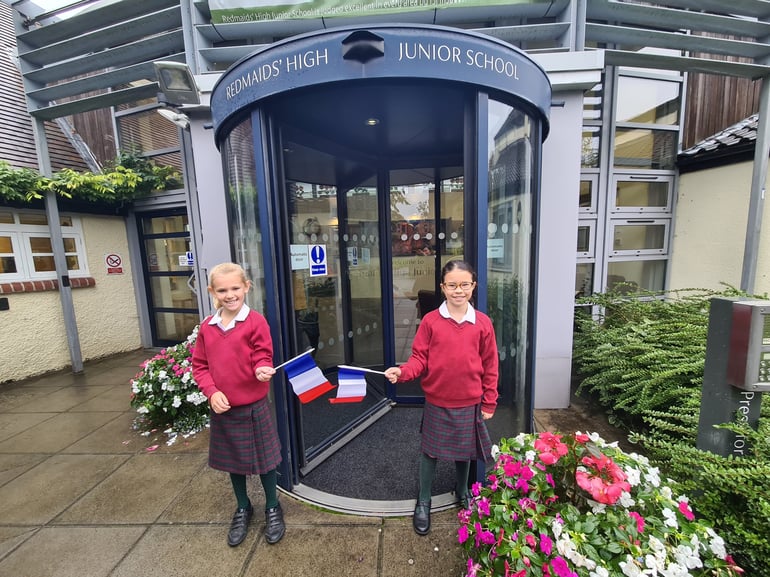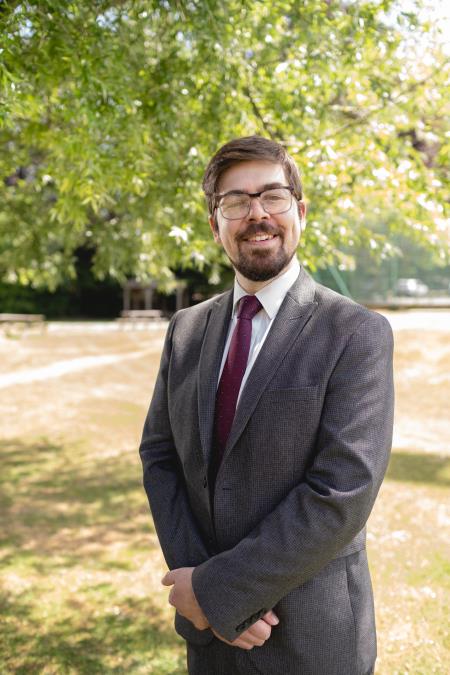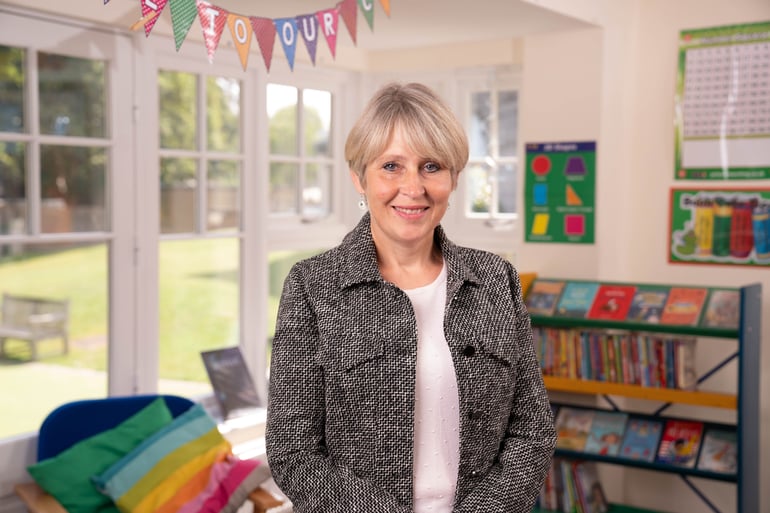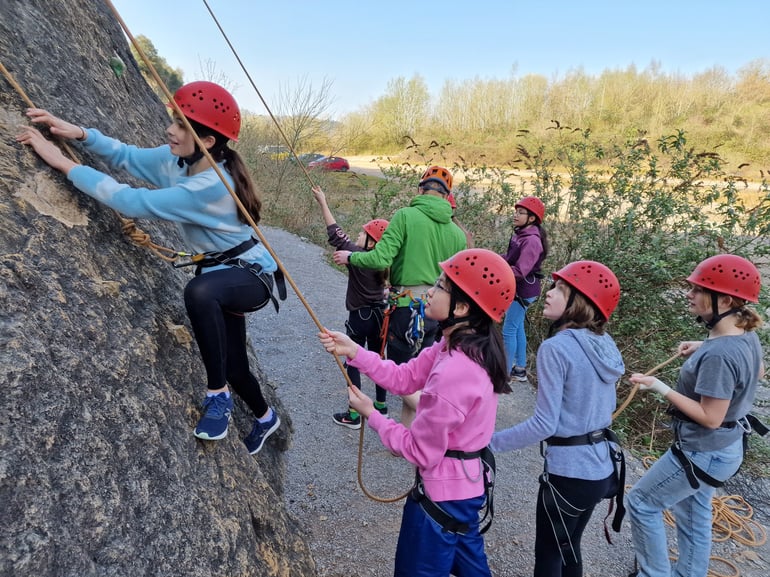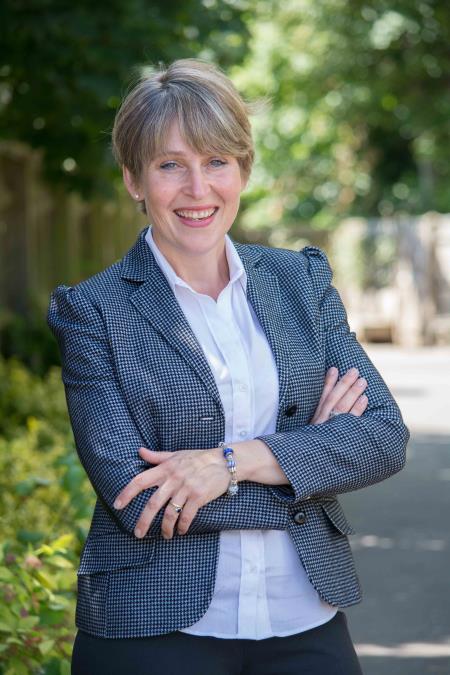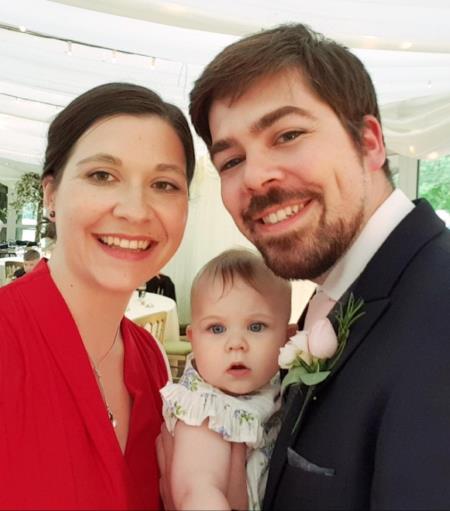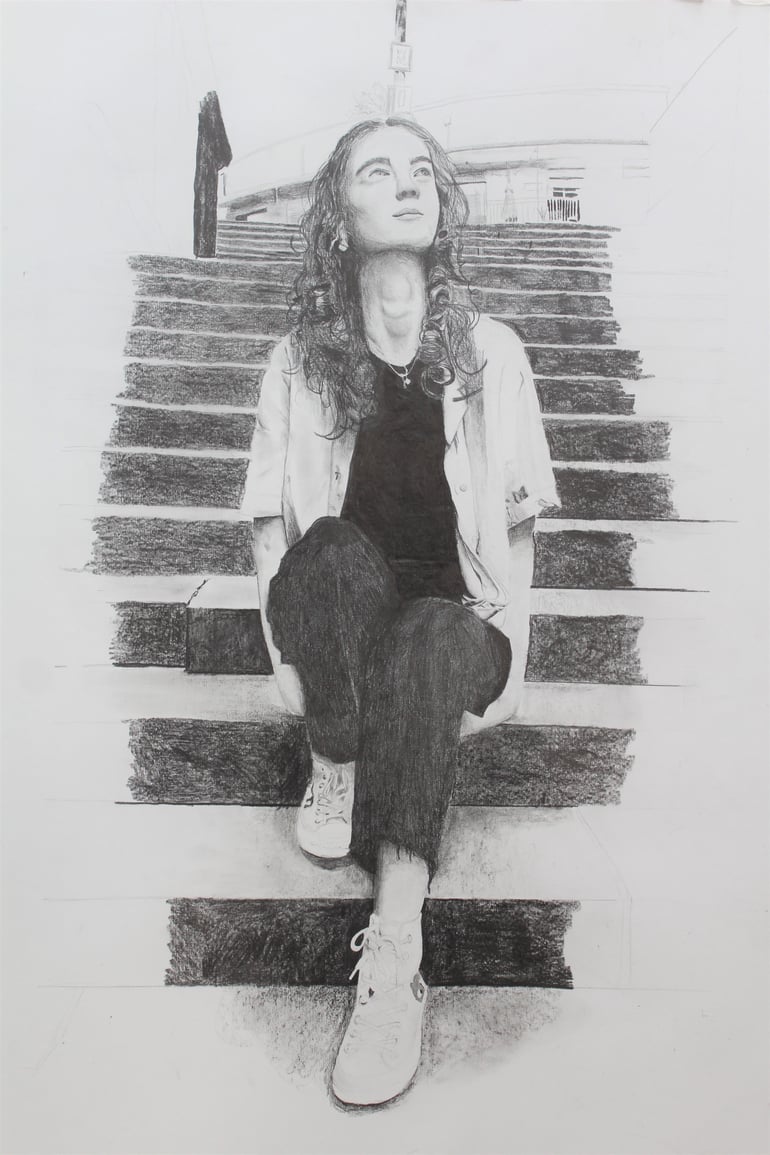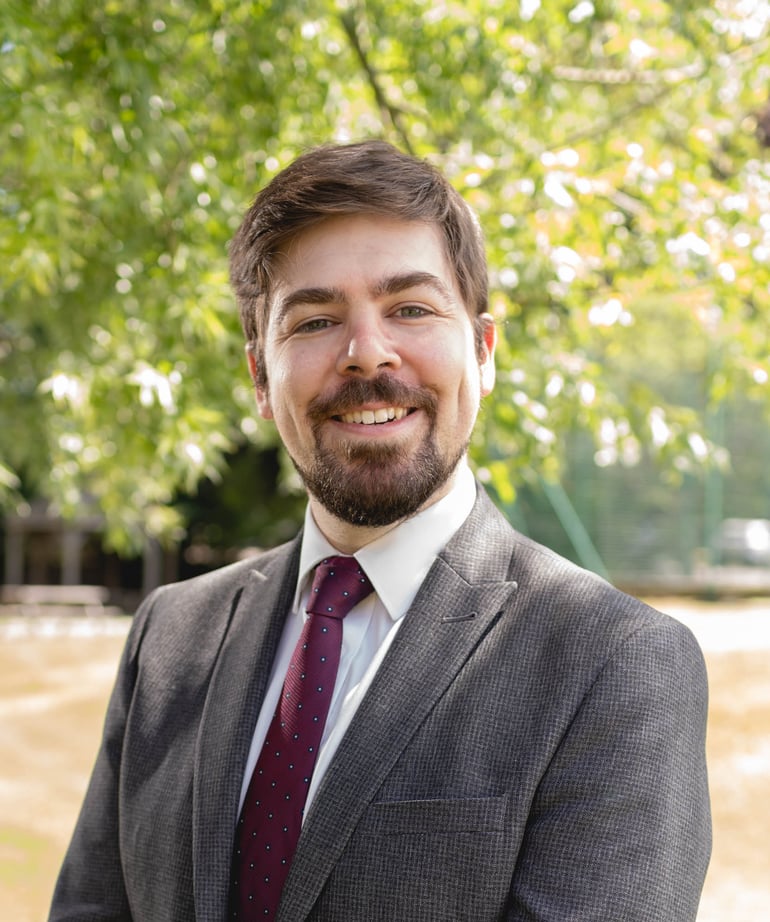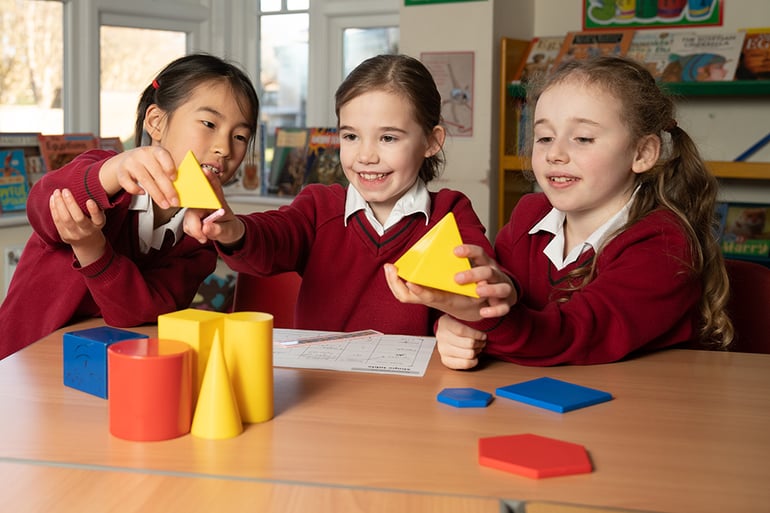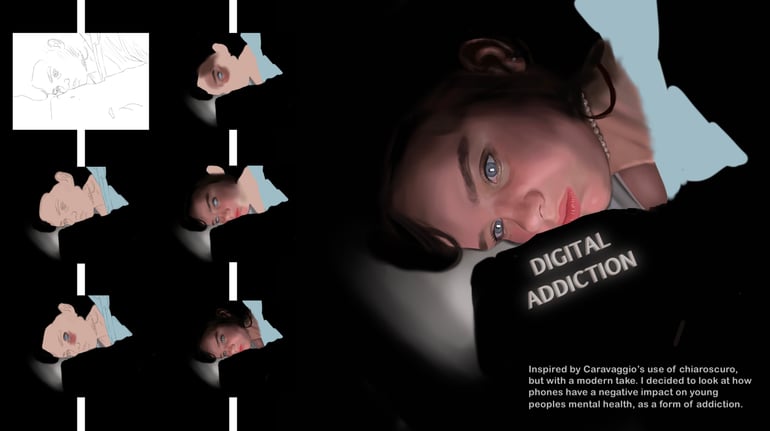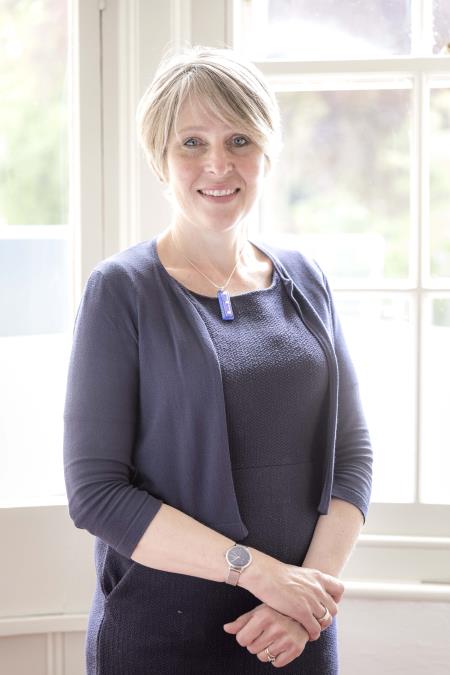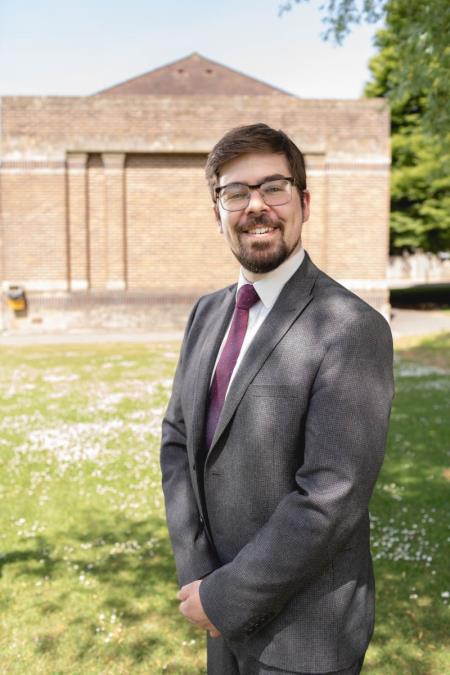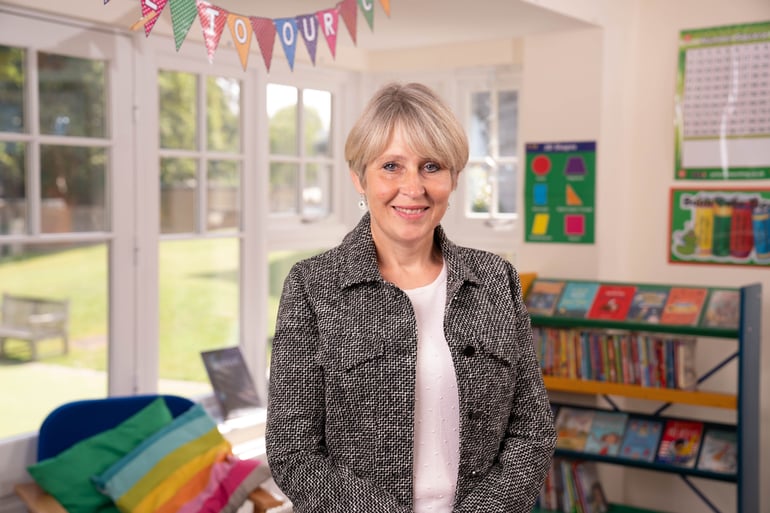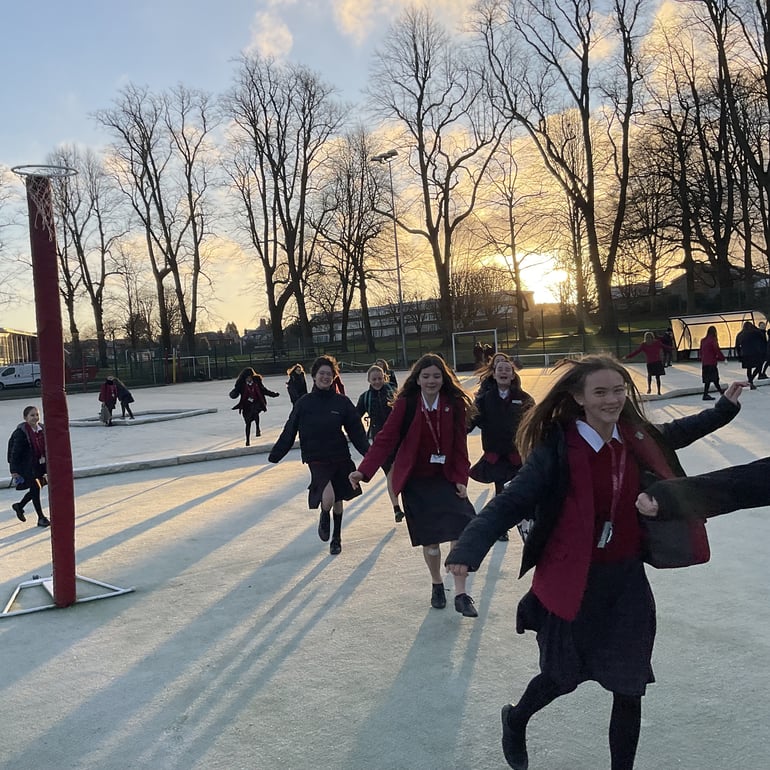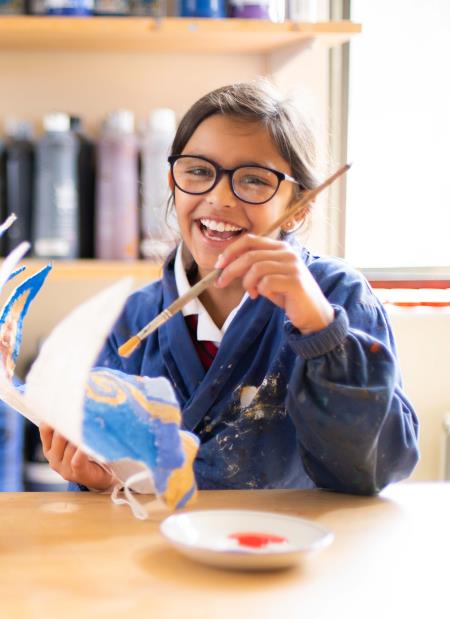Head's Blog - Children's Mental Health
Head's Blog - Paul Dwyer
Recent events in school, have reminded me just how much music matters: Monday 12 October, 2020
Music is such an intrinsic part of our lives that I struggle to remember a day where it wasn’t present. From listening to songs on the radio whilst washing-up to singing along to otherwise guilty pleasures whilst driving, even some of life’s simplest tasks are more often than not, accompanied by music. Our favourite songs can be the first place we seek refuge during difficult times or will accompany and mark the key milestones of our lives.
Yet, despite its consistent presence in my life, I find it easy to overlook the impact music has on me. Two recent events in school have brought this fact to my attention and made it a point of further reflection.
The first was being invited to participate in ‘Desert Island Desks’, a spin on the eponymous Radio 4 show. Having to think carefully about the tracks that I would include, narrowing down a rather long list of songs that have all meant something to me at one point or another, and speaking to points of inspiration throughout my life was no small task. Some of my choices paid tribute to my family and background, others to the person I once was or had hoped to be. It was only when I was asked to sit and think about the role of music in my life, that I realised just how central a role it has played.
(I have included the link to the show here for anyone who is interested, in order to publicly own up to my fondness for Jimmy Eat World and Carly Rae Jepsen.)
The second event was the first rehearsal of the year for our string orchestra. Recent changes in government guidelines have allowed for some socially distanced ‘cross-bubble’ activities to take place after school, meaning our musicians can come together once again.
I was not prepared for just how much I would be moved by hearing the strings swell for the first time in far too long. I hadn’t heard live music since March and the joy of performance among the girls and staff was a sight to behold.
Music should not be confined to bluetooth speakers or car radios. It should not be hidden away, as Allegri’s Miserere was until the intervention of a teenage Mozart. It should fill vast spaces where people can come together and share a collective moment in appreciation for something bigger than ourselves. It shouldn’t matter if the piece is Faure’s Requiem or Taylor Swift’s ‘Shake it Off’, there is power in performance and art and it is such a shame so much has been silenced in recent months.
The pressure on music and the performing arts has always been a challenge in schools, made worse by budget squeezes, curriculum changes and the idea that some subjects are simply more worthwhile than others. There are many who have defended against such sentiment over the years more eloquently than I. It remains clear that issues for the arts are more prominent than ever before; we will all be poorer for the loss of live music venues and performing arts spaces as a result of COVID-19, to say nothing of the technical expertise and creativity that will not find outlets for expression as readily.
Schools can be somewhat of a bulwark against these changes, even if on a small scale in the grand sweep of events. It’s been a pleasure to see Year 7 samba drumming outside, to hear our socially distanced choirs in action, and to join the audience for the first in a new lecture series on the importance of the performing arts.
All these experiences have only cemented my view that participating in music or drama at school or beyond is not just about the skills and confidence that one develops. It’s about continuing in the great tradition of understanding one another and transcending our individual experience. It’s about recognising our cultural heritage in its diverse forms, adding our small voices to a greater chorus that is centuries old.
We will get the chance to perform together before too long. And we will relish these moments all the more having lost them even for a few months.
The importance of words, and what we can learn from Ruth Bader Ginsburg: Friday 25 September, 2020
I have always been a fan of Ruth Bader Ginsburg. There are few Supreme Court Justices who create a reputation in the way that she did, replete with her own nickname ‘the Notorious RBG’. The outpouring of grief that followed her recent passing, including the impromptu memorial created outside the Supreme Court is unprecedented and speaks to the legacy that she created through her work, her humility, her scholarship and her humour.
Ginsburg’s work and legacy is part of the broader sweep of history that has seen more attention rightly given to the inequalities that still exist in society, whether due to gender, race and ethnicity, background or education. With this in mind, she was an obvious choice for my recent assembly once I heard the news of her death. There is a great deal that I could have spoken about or now write about her advocacy work as a member of the ACLU, the inspiration she has proven to many who have felt overlooked in society or indeed the power of her friendship across partisan divides (the fond friendship between Ginsberg and Antonin Scalia, her ideological opposite, was the subject of an opera, Ginsburg/Scalia).
However, on this occasion, and indeed the theme of my assembly was on a different point; the precision of her words. Ginsburg was renowned for her attention to detail and for the meticulous way in which she deployed the rather considerable vocabulary at her disposal. Consider, for instance, her dissent in a case regarding affirmative action, Gratz v. Bollinger. Ginsburg wrote:
“Actions designed to burden groups long denied full citizenship stature are not sensibly ranked with measures taken to hasten the day when entrenched discrimination and its after effects have been extirpated….If honesty is the best policy…affirmative action program is preferable to achieving similar numbers through winks, nods, and disguises.”
These are powerful words, yet arguably lack the rhetorical flourish that we might associate more readily with politicians who have created reputations based on soaring oratory. Perhaps this speaks to the preference in society for those who can speak with power and appeal to a wide audience, at the expense of those whose attention to detail and clarity of argument will often move issues forward far more readily. “Get Brexit Done” appealed to the electorate in 2019 but it is those behind the scenes now entrusted to work out the complexities of our extrication from the EU.
I highlight this issue as I feel it can also shine a light on our approach to life in the classroom. I have fallen into the trap too often of making assumptions about the understanding or progress of a student due to their confidence at leading discussion in lessons, without considering more readily the precision of their arguments. Similarly, I’ve been too slow on occasion to recognise the strength of a student because I’ve not created the kind of space where they can be heard and listened to. This has been a particular focus for me in recent years. Not making ‘loud’ students quiet, but instead reflective. And not telling a more reserved student ‘to speak up more’, but instead finding ways to truly listen to them. Being ‘impeccable with ones words’, as a note passed to me by a Headmistress I once worked with advised, is not about encouraging perfection. It is instead about seeing strength in noticing and thinking carefully. All qualities that Ruth Bader Ginsburg demonstrated throughout her storied career and that many more of us might reflect upon.
What it means to come back: Thursday 3 September, 2020
“We come from all the divisions, ranks and classes of society…To teach and be taught in turn. While we mingle together in these pursuits, we shall learn to know each other more intimately; we shall remove many of the prejudices which ignorance or partial acquaintances with each other had fostered…in the parties and sects into which we are divided, we sometimes learn to love our brother at the expense of him whom we do not in so many respects as a brother…we may return to our homes and fireside with kindlier feelings toward one another, because we have learned to know one another better” - Thomas Greene at the opening of a community Lyceum in Massachusetts in 1829.
This extract, as quoted in Bowling Alone has stuck with me throughout the lockdown period, because it speaks to the strength of a community when gathered physically; something I can’t ever imagine taking for granted again. Greene speaks to the special possibilities that are afforded in social spaces, particularly those designed to ignite discussion and encourage collaboration.
Given that a new set of cliches has now entered our vernacular as we refer to the ‘new normal’ and ‘unprecedented times’, I might be forgiven for falling back on a slightly older cliché to highlight my feelings on the eve of a new school year: a school is not just a building. This has never been more true than the last six months as schools have gone to great lengths to replicate our community in an online environment. We remain just as passionate about our subjects when delivering content via Teams or Zoom.
This should not disguise the excitement that I feel about welcoming all students and teachers back into school at the start of a new academic year. Bringing people together provides a chance for us all to reconnect as a community and share in the joy of learning in a way that is harder to replicate online. Anyone who visits a school in full flow will feel the energy that emanates from classrooms and corridors. Physically sharing spaces provides conditions ripe for scholarly effervescence to ripple throughout the site. Thoughts ignite as students connect new ideas with old and build bridges between subjects or sources; between their current understanding and their aspirations.
There is no substitute for over-hearing snippets of conversations in corridors as students continue passionate debates that had started in the classroom, or sharing a knowing glance with a group as you reach a key passage in a text or recount the ebbs and flows of battle and heighten the anticipation for what comes next. These are the shared experiences I look forward to sharing once again with all members of our school community as the new year begins. It is something from which we all draw energy.
We cannot avoid the fact that (to use another cliché), this will be another year like no other. The safety of our students will remain our key priority as we continue to mitigate the spread of coronavirus. There are still unknowns about the shape of the year to come; will exams to be delayed? What lessons can we learn if schools are asked to lock down once more? These thoughts are at the forefront of our minds as teachers and what is best for our students will guide our actions. Not just best for the few months that lie ahead, but best for their futures.
Challenges remain for all of us. Preserving bubbles might remove some of the ease with which we move through the school day but it will not take away any of the energy. Passion will still inform our teaching and acting with care for each individual will always be at our core so that “we may return to our homes and fireside with kindlier feelings toward one another, because we have learned to know one another better.”

-450_th.jpg)
